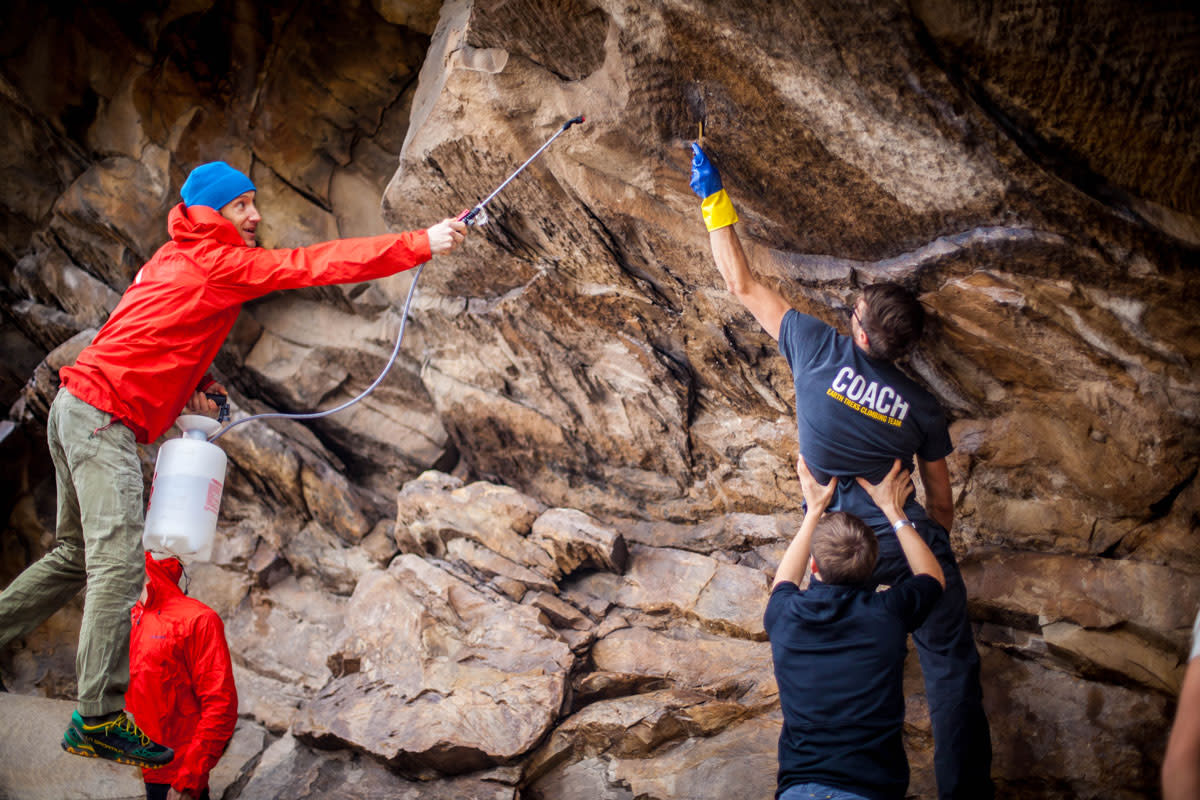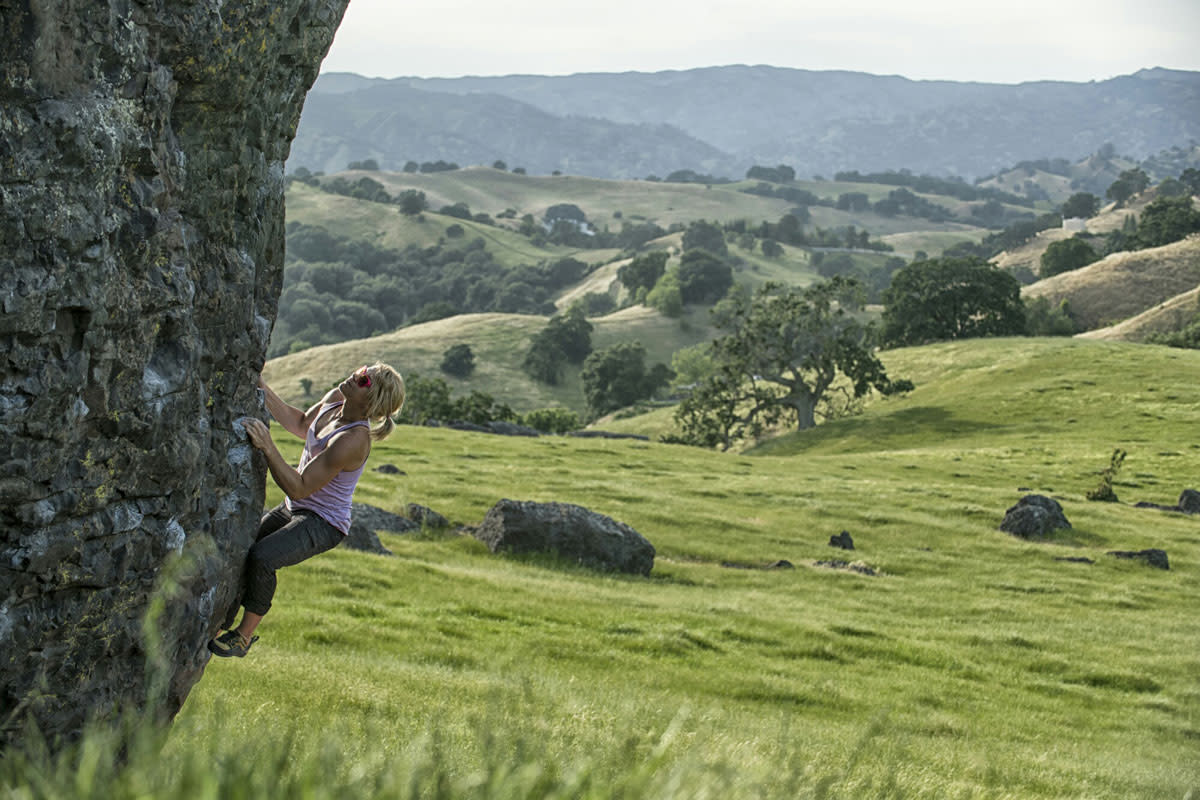With the rise of indoor climbing, what happens when the gym rats show up at the outdoor crags?
Auto-belay training in a gym, while delivering the basics of rock climbing technique in a safe, secure environment, simply can’t prepare athletes for all the nuances of climbing outside.
“What has shifted is the way people are attaining the proper knowledge and how that knowledge has been passed along,” Seth Murphy, director at Earth Treks climbing gym in Golden, Colorado, tells us.
“Before climbing gyms, the most popular way to get involved in the sport was by having a mentor that was an experienced climber.”
And while we can hope that trad climbers, who still train in gyms, will continue to transfer the DNA, some of the education is on the gym’s shoulders.
Earth Treks tries to teach universal outdoor etiquette and environmental ethics in a variety of ways.
For example, there’s a gym-to-crag class as well as a course where students learn how to safely set up a top-rope system using natural and artificial anchors, plus mostly free clinics on belay escapes, how to clean sport anchors and other advanced lead-belay techniques.
Murphy says outreach helps too: “We try to facilitate the interaction between new climbers and the experienced community with events like Friday Rendezvous, where new climbers mix with experienced climbers in a laid-back, fun atmosphere.”

The gym also partners with the American Alpine Club on a speaker series featuring professional and non-professional climbers. Each event has a fundraising element for organizations like Front Range Climbing Stewards or the Access Fund and culminates with a local crag cleanup project.
However, when it comes to unspoken rules of the rock—cleaning landing zones, simul-climbing, old tat, texting on route—new climbers can’t rely on rock gyms to do all the heavy lifting. Some insider knowledge you have to glean through the pros.
Expert climber Anna Pfaff breaks down a few important ideas in outdoor climbing etiquette and ethics:
Erase Your Footprint
“Research, understand and always practice the seven principles of Leave No Trace behavior in the outdoors. It is foremost to remember we are all visitors in the great outdoors and we have to treat the environment with respect.”
Find a Mentor
“I have always sought out a more experienced climber that I trust to climb with, review skills and talk through situations. Climbing is a dichotomy of simple yet complex at the same time. Being aware of what you don’t know is the only way to learn more.”

Honor Your Outside Time
“I appreciate the brisk wind in my hair, the softness of golden sandstone and the coarse friction of granite. I enjoy the bustle of leaves and the chirping birds just as much as I can laugh at the ants crawling on my toes and the bee buzzing in my ear.
“This is why outdoor climbing is special.”
from Men's Journal https://ift.tt/30AAIiI


0 comments